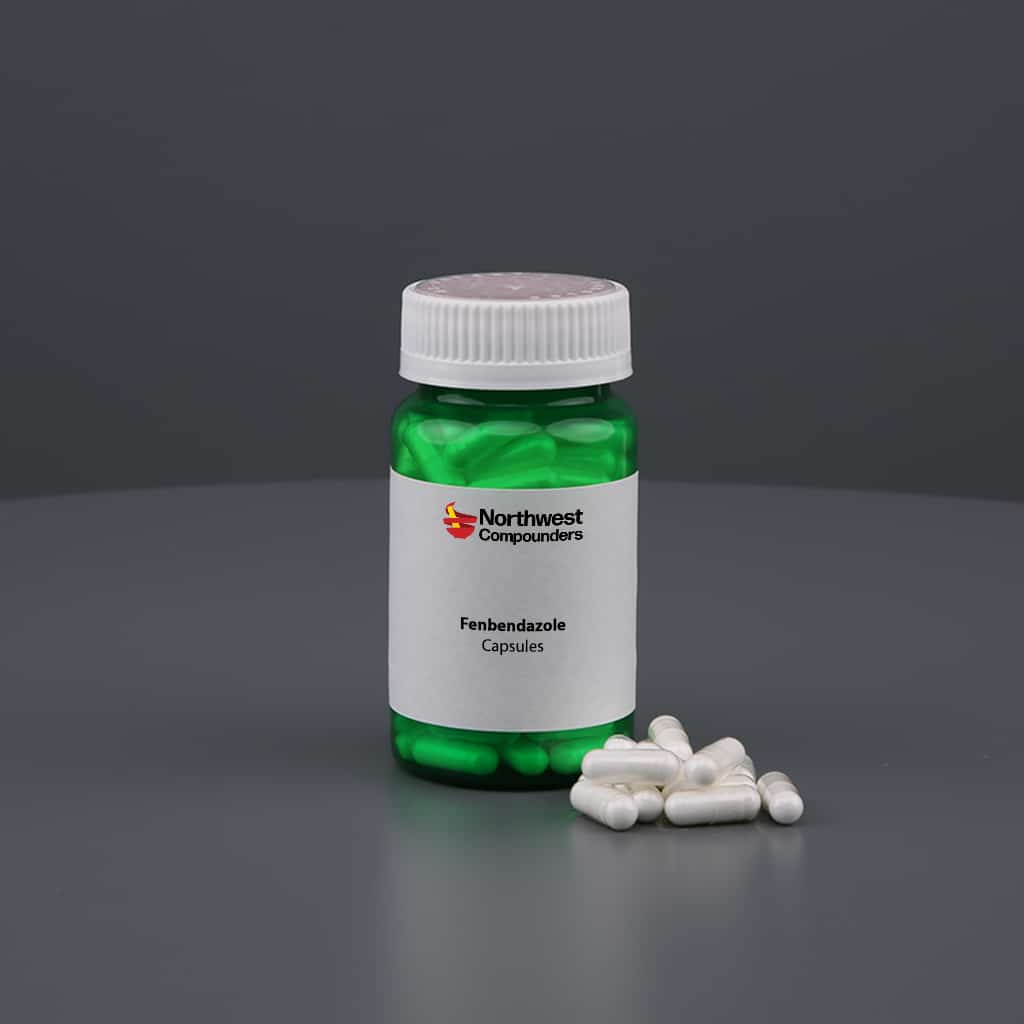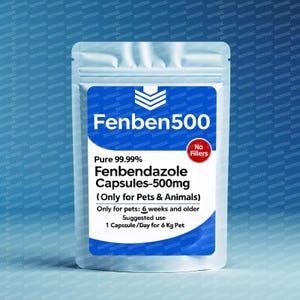Checking out the Systems Behind Fenbendazole and Its Influence On Pet Wellness
Fenbendazole is a widely utilized anthelmintic understood for its effectiveness versus different bloodsuckers. Its key mechanism entails the restraint of microtubule formation, which interferes with important procedures in these virus. Past its antiparasitic residential properties, fenbendazole likewise shows up to boost immune reactions and possesses anti-inflammatory benefits. Recognizing these multifaceted effects could reveal new applications for animal health. Nevertheless, concerns stay concerning its full capacity and safety and security profile.
The Pharmacokinetics of Fenbendazole
The pharmacokinetics of fenbendazole, a widely utilized anthelmintic in vet medication, includes the research of its absorption, circulation, metabolic process, and discharging within animal systems. After administration, fenbendazole is swiftly taken in from the intestinal tract, with peak plasma focus taking place within hours. Its distribution is influenced by variables such as tissue binding and lipid solubility, permitting it to permeate different tissues efficiently. The medicine undertakes substantial metabolic process mostly in the liver, where it is transformed into energetic and inactive metabolites. These metabolites play a function in the medication's total efficacy and security profile. Discharging takes place primarily with feces, with a smaller proportion removed using pee. The half-life of fenbendazole differs among types, which influences application programs. Recognizing these pharmacokinetic residential properties is important for maximizing its therapeutic usage and ensuring efficient parasite control in veterinary techniques.
Devices of Activity Against Parasites
Fenbendazole exerts its antiparasitic impacts mainly with the inhibition of microtubule development in bloodsuckers. This interruption influences their structural stability and cellular features, causing damaged basal metabolism. As a result, the medication properly compromises the survival and reproduction of numerous parasitic organisms.
Inhibition of Microtubule Development
Inhibition of microtubule development stands for an essential device whereby specific anthelmintic agents, including fenbendazole, apply their impacts on bloodsuckers. Fenbendazole binds to tubulin, a protein that forms microtubules, interfering with the polymerization procedure needed for microtubule assembly. This disturbance impairs important mobile features, including mitosis, intracellular transportation, and architectural stability. As microtubules play a crucial duty in preserving the shape and feature of parasitic cells, their inhibition results in cell cycle arrest and ultimate death of the bloodsucker. This system is specifically reliable against nematodes, as their dependence on microtubules for wheelchair and nutrient absorption makes them vulnerable to fenbendazole. The inhibition of microtubule development is an important element of fenbendazole's therapeutic efficiency in veterinary medicine.
Interruption of Basal Metabolism
Disrupting energy metabolism is an additional vital system by which fenbendazole targets parasitical organisms. This anthelmintic modifies the power production paths within parasites, mainly impacting their capacity to produce adenosine triphosphate (ATP) By hindering glucose uptake and disrupting mitochondrial function, fenbendazole limitations the energy resources crucial for the survival and reproduction of these organisms. As an outcome, parasites end up being significantly vulnerable to environmental tensions and immune responses. Moreover, the disturbance in power metabolism not just influences the bloodsuckers directly yet also decreases their ability to assimilate nutrients, additionally harming their growth. On the whole, the interruption of basal metabolism stands for a fundamental element of fenbendazole's efficacy versus various parasitical infections, adding considerably to enhanced animal health results
Possible Adverse Effects and Safety And Security Profile
The prospective negative effects and safety and security account of fenbendazole warrant mindful consideration, especially in vet applications. While normally considered safe, some pets might experience adverse reactions, consisting of intestinal disturbances such as throwing up and looseness of the bowels. Furthermore, neurological symptoms, although rare, have actually been reported in delicate individuals, highlighting the demand for monitoring throughout treatment.

Fenbendazole's security in various types, including dogs and pet cats, has been documented, yet dose and period of therapy have to be thoroughly managed to lessen risks. Expecting or lactating animals may likewise call for special attention, as the results on developing fetuses or nursing spawn are not completely recognized.
Normal vet examinations can help alleviate possible adverse effects and assure the medication is administered suitably. While fenbendazole is a reliable anthelmintic representative, alertness concerning its side effects is necessary for maintaining pet health.
Fenbendazole's Influence on Immune Function
Fenbendazole has actually been noted for its potential to modulate immune system responses in animals. Its anti-inflammatory residential or commercial properties may add to improved immune feature, giving a double advantage in taking care of health and wellness (fenbendazole 444). Recognizing these impacts is essential for reviewing fenbendazole's duty in vet medicine
Body Immune System Inflection

Anti-inflammatory Characteristics
Anti-inflammatory effects stand for a considerable facet of fenbendazole's influence on immune function. Study suggests that fenbendazole might reduce the production of pro-inflammatory cytokines, which are pivotal in moderating inflammatory actions. By regulating these cytokines, fenbendazole can potentially alleviate inflammation-related problems in animals. This anti-inflammatory activity not just help in taking care of symptoms connected with various illness however additionally boosts overall body immune system efficacy. Additionally, its ability to promote a balanced immune action aids stop too much inflammatory damage, which can cause chronic health and wellness issues. Fenbendazole's duty in swelling monitoring highlights its importance in vet medicine, providing a dual advantage of antiparasitic activity and immune system support for animal health and wellness.
Applications Past Typical Parasitic Infections
While mostly recognized for its efficiency versus various parasitical infections, fenbendazole has gathered interest for prospective applications yet conventional range. Current research studies recommend that fenbendazole might have beneficial impacts on cellular health and immune response, making it an appealing prospect for taking care of other health and wellness problems in animals. For example, its reported anti-inflammatory residential or commercial properties might provide alleviation for animals struggling with chronic inflammatory illness. In addition, some study shows that fenbendazole can about his play a role in supporting the overall wellness of animals by enhancing vitamins and mineral absorption and gastrointestinal health. Moreover, its prospective as an adjunct treatment in cancer therapy has actually triggered rate of interest, as initial searchings for suggest it could inhibit tumor cell growth in certain contexts. These diverse applications highlight fenbendazole's versatility, encouraging additional expedition into its multifaceted advantages for animal health beyond its conventional usage as a deworming representative.
Future Research Study Instructions and Ramifications for Animal Health
The expedition of fenbendazole's possible applications has opened up new avenues for study focused on improving animal health and wellness. Future research studies could concentrate on its performance versus a broader variety of virus, consisting of microorganisms and infections, therefore broadening its duty in vet medicine. The effects of fenbendazole's systems, such as its influence on immune modulation, warrant better examination to recognize just how it can bolster overall health and wellness in different varieties.
Furthermore, study might explore suitable dosages and formulas to maximize effectiveness while minimizing potential side impacts. Examining fenbendazole's collaborating effects with other medications could bring about a lot more reliable therapy protocols. Longitudinal researches assessing long-term outcomes in pets treated with fenbendazole can provide useful insights into its security and effectiveness. Overall, the continued expedition of fenbendazole offers appealing potential to enhance pet health and wellness, necessitating a joint strategy amongst researchers, veterinarians, and pharmaceutical programmers to assist in improvements in this location.
Regularly Asked Inquiries
Can Fenbendazole Be Used in Livestock for Bloodsucker Avoidance?
The concern of whether fenbendazole can be visit this page made use of in animals for bloodsucker prevention matters, as manufacturers look for reliable therapies (fenbendazole capsules). Study shows it may give benefits, but correct standards and vet recommendations are vital for secure usage
What Is the Suggested Dose of Fenbendazole for Various Animals?

Are There Any Known Medicine Communications With Fenbendazole?
Present expertise shows that fenbendazole might communicate with particular drugs, possibly influencing their effectiveness or metabolic rate. Vet professionals recommend talking to a vet to examine private pet situations and establish any type of feasible communications prior to management.
How Does Fenbendazole Contrast to Other Antiparasitic Medicines?
Fenbendazole is typically contrasted to other antiparasitic medicines based on efficacy, range of activity, and security profiles. It is favored for its effectiveness against a wide variety of bloodsuckers while normally showing minimal adverse effects in animals.
Is Fenbendazole Effective Versus Viral or Microbial Infections in Pets?
The performance of fenbendazole versus viral or bacterial infections in animals continues to be unverified. Research study mainly concentrates on its antiparasitic properties, with minimal proof sustaining any function in treating non-parasitic infections in veterinary medication.